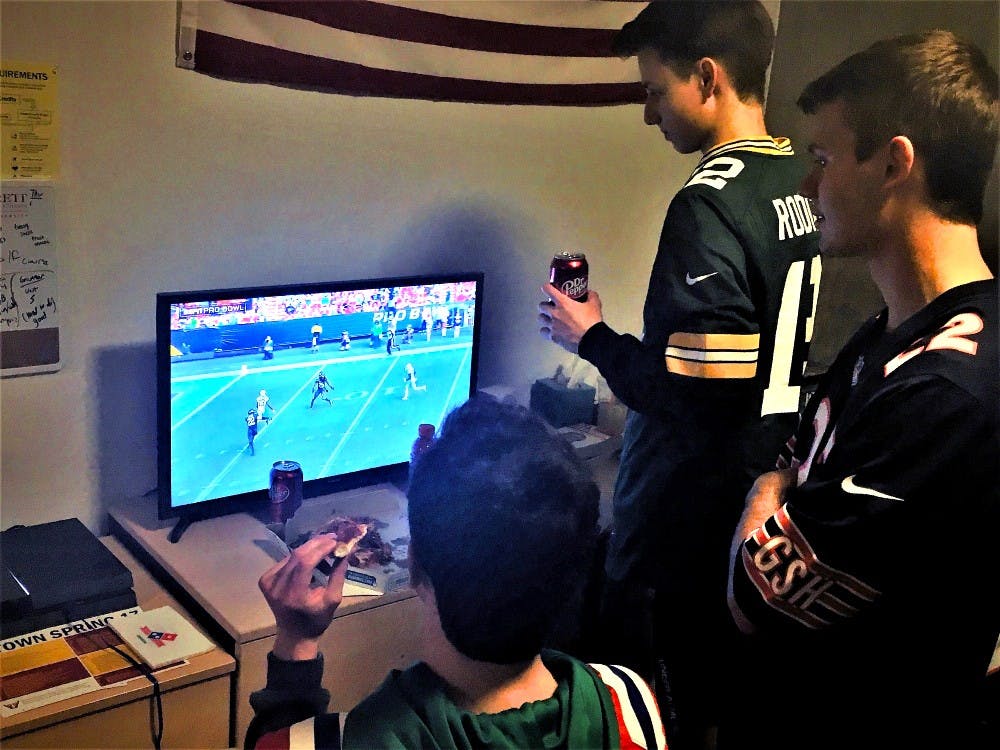Year after year, the NFL’s finest are selected from all over the league, stripped of their respective team logos and put on a field together for what is supposed to be the ultimate game of football.
Unfortunately, while the Pro Bowl certainly brings talent to the table, players and fans alike are having a hard time finding any value in it and are losing interest.
The upcoming event will include wide receiver Larry Fitzgerald, running back David Johnson and cornerback Patrick Peterson from the Arizona Cardinals. In the past, former Sun Devils have represented the Phoenix area in the Pro Bowl, namely Terrell Suggs and Darren Woodson, who have each been selected to play five times.
However, the last thing players want at the end of a long, exhausting season is a game without meaning that creates an unnecessary risk for injury.
“Just in general, I would think football is the most dangerous of our major sports,” said Brett Kurland, director of the Phoenix Sports Bureau and multimedia sports reporting professor. “Football is such a grueling sport […] Nobody in football is 100 percent at the end of the season.”
As players get knocked down and have to immediately get back up almost every play, they face the constant threat of injury, whether it be a torn ACL, a broken rib or a concussion. They are willing to take this risk every week because that’s the job they’re paid to do.
Yet in the case of the Pro Bowl, there aren’t any high stakes for the players, so there isn’t the same kind of incentive that draws them to play as there is in the regular season.
Because many players are extremely precautious, the league’s absolute best typically decline their offers to play, creating a supposed all-star game without the real all-stars. In the 2016 Pro Bowl, 45 players declined to participate, forcing the NFL to invite a record 133 athletes in order to meet the 44-player team requirement.
Of those who declined, 14 had to because they were playing in the Super Bowl the following week.
“The Pro Bowl used to be after the Super Bowl, so it was almost like a victory lap,” Kurland said. “Now that it’s before the Super Bowl, if you assume the two teams that go to the Super Bowl are the best teams, you got players from the two best teams not participating in it.”
Due to factors that cause the league’s best players to decline to opportunity and those who accept to play cautiously, the Pro Bowl ultimately becomes a lighthearted, offensive game with no hard hits, no fights, no risks — in short, nothing that makes football the emotionally charged game that it's supposed to be.
On paper, the Pro Bowl seems to be a great idea; similar contests in other sporting events like the NBA All-Star Weekend have always been a big hit among players and fans.
“I think the NBA has done a really good job of building a brand around an NBA All-Star Saturday Night, with the Slam Dunk Contest, the 3-Point Contest, and the Skills Challenge,” Kurland said. “The thing about those events, they do a good job of showcasing individuals. Same thing in major league baseball with the home run derby.”
In 2014, a new format was introduced in lieu of the typical AFC vs. NFC match-up where captains got to choose their own players. This setup, while it seemed promising at first, lasted only three years and saw a 13 percent decline in TV ratings from 2014 to 2015, followed by another 16 percent decline in 2016.
The upcoming Pro Bowl will revert back to the traditional, conferenced format.
The decline in ratings likely occurred because without the separation of divisions, it’s much harder for fans to form an allegiance to either team — especially since the draft format creates the possibility for players from the same team to be split up.
Fans have become more disengaged and disinterested even as the NFL continues to try to make the game more entertaining, and it is doubtful that the league will ever find a solution that can turn the event into a cause for national excitement. The future of the Pro Bowl is unpromising, and despite the NFL’s valiant effort, it may be time to let go.
The 2017 Pro Bowl will air Sunday, January 29 at 6 P.M. MT on ESPN.
Reach the columnist at alexwolfe3098@gmail.com or follow @alexandracwolfe on Twitter.
Editor’s note: The opinions presented in this column are the author’s and do not imply any endorsement from The State Press or its editors.
Want to join the conversation? Send an email to opiniondesk.statepress@gmail.com. Keep letters under 300 words and be sure to include your university affiliation. Anonymity will not be granted.
Like The State Press on Facebook and follow @statepress on Twitter.




